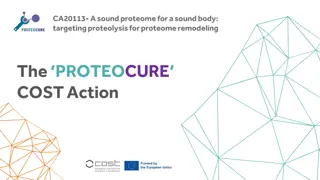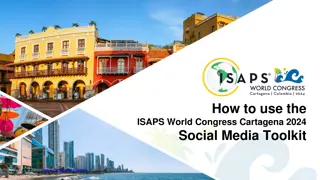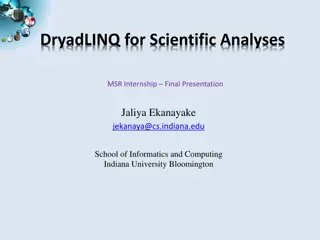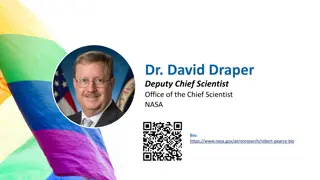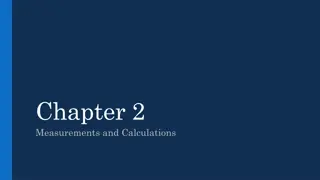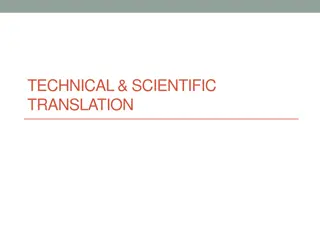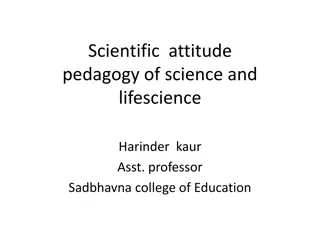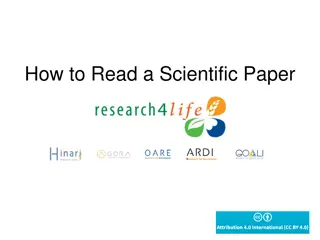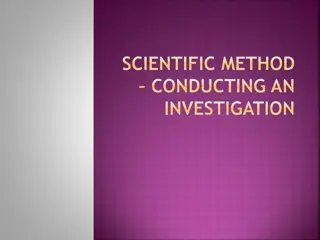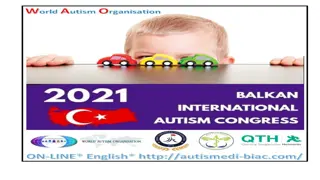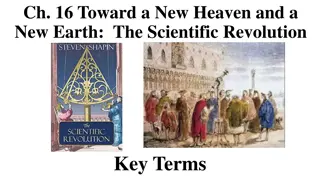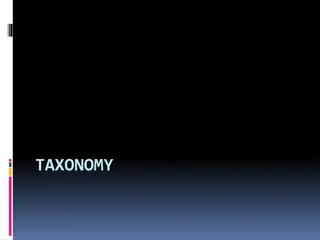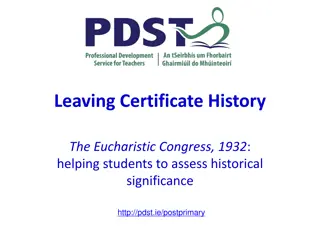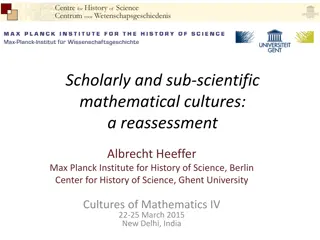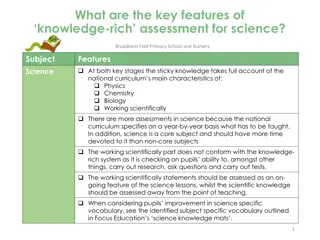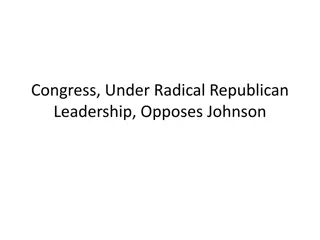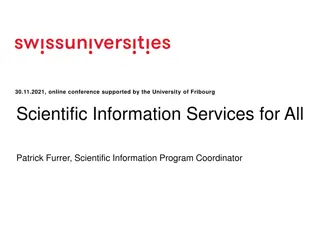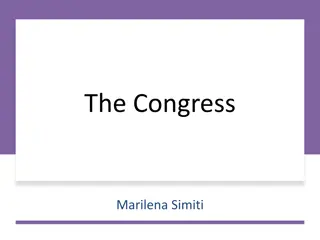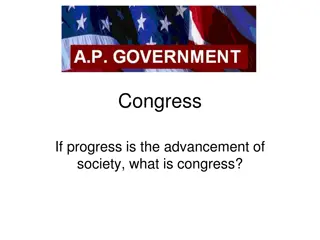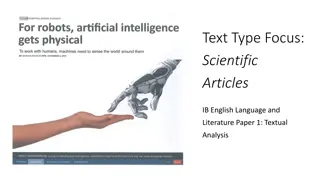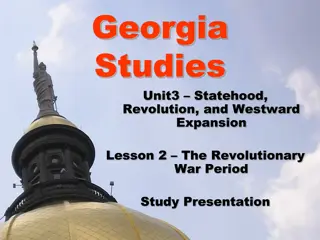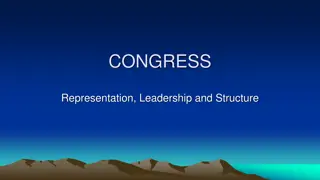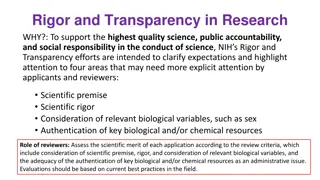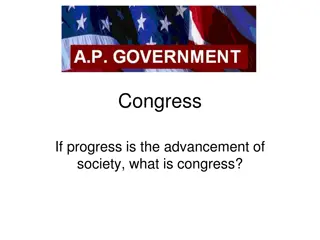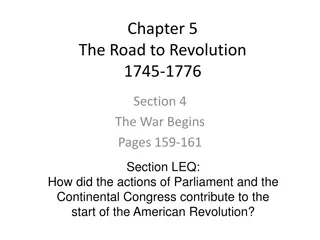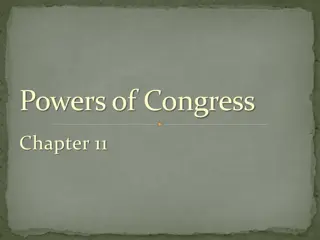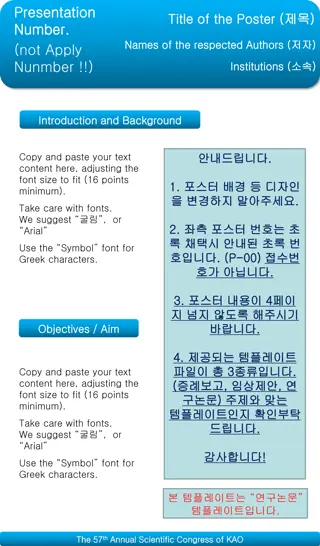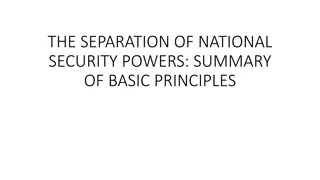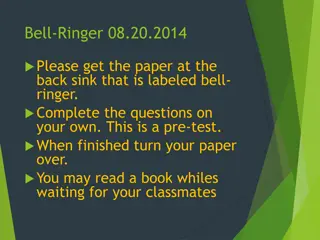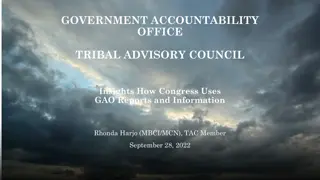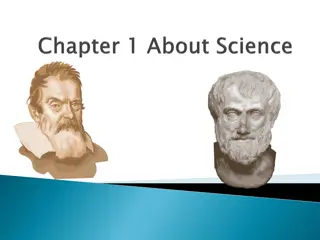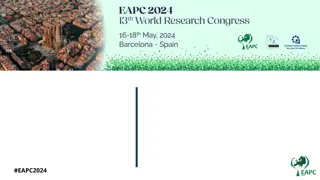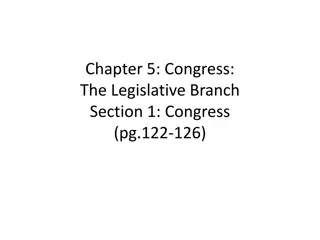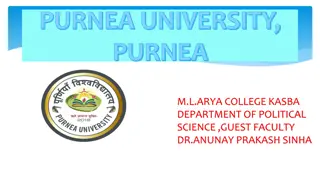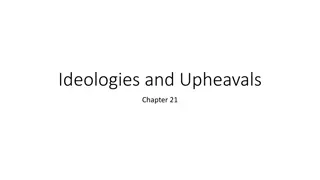Enhancing Scientific Literacy in Early Years Play-Based Learning
This PhD research proposal explores scientific literacy among children in play-based learning, focusing on everyday concepts and their application to scientific understanding. The study aims to implement Vygotsky's sociocultural theory to enhance children's scientific literacy through Vision 1 and V
7 views • 19 slides
Exploring the PROTEOCURE COST Action: Targeting Proteolysis for Proteome Remodeling
The PROTEOCURE COST Action focuses on targeting proteolysis for proteome remodeling, aiming to enhance Europe's scientific and technological capacity through collaboration across various fields and career stages. Participating in this initiative offers financial support, scientific networking, and c
0 views • 17 slides
Understanding Climate Change through Scientific Inquiry
Explore the role of science in addressing climate change, identifying scientific questions, discussing different disciplines involved, and analyzing the strength and limitations of scientific methods. Engage in activities to understand how scientific questions are formulated and categorized for inve
2 views • 22 slides
Maximizing Social Media Engagement for ISAPS World Congress Cartagena 2024
Discover ways to promote the ISAPS World Congress 2024 effectively on social media platforms such as Facebook, Twitter, Instagram, YouTube, and LinkedIn. Enhance your engagement by personalizing your account with cover images, photo frames, GIFs, and logo images available for download. Join the glob
0 views • 6 slides
Evaluation of DryadLINQ for Scientific Analyses
DryadLINQ was evaluated for scientific analyses in the context of developing and comparing various scientific applications with similar MapReduce implementations. The study aimed to assess the usability of DryadLINQ, create scientific applications utilizing it, and analyze their performance against
0 views • 20 slides
Overview of NASA's Office of the Chief Scientist and Deputy Chief Scientist Dr. David Draper
The Office of the Chief Scientist (OCS) at NASA plays a vital role in advising, advocating, and representing the agency in various scientific matters. Dr. David Draper serves as the Deputy Chief Scientist. The OCS leads initiatives related to scientific integrity, research security, citizen science,
2 views • 11 slides
Understanding the Scientific Method in Measurements and Calculations
Explore the scientific method in detail, including observing, collecting data, formulating hypotheses, testing hypotheses, and formulating theories with practical examples. Understand the importance of experimentation and how it leads to the development of scientific theories. Engage in activities t
6 views • 43 slides
Understanding Scientific Translation: A Vital Tool for Advancing Knowledge
Scientific translation is a specialized practice that involves accurately translating complex terms in fields such as science and technology to facilitate global knowledge exchange and advancement. It requires precision, fidelity to source material, and a deep understanding of technical terminology
0 views • 60 slides
Understanding Scientific Attitude and Pedagogy of Science
Scientific attitude involves open-mindedness, curiosity, rationality, and a desire for accurate knowledge. It includes characteristics such as critical thinking, respect for diverse viewpoints, and a reliance on verified information. Developing a scientific attitude involves studying superstitions,
1 views • 6 slides
Guide to Reading Scientific Papers
Understanding how to read a scientific paper is crucial for researchers and students alike. This guide covers the types of scientific papers, organization of a paper, and the key steps to properly read and comprehend complex scientific information. It explains the different sections of a paper, such
0 views • 20 slides
Understanding the Scientific Method: A Comprehensive Guide
Exploring the scientific method and principles of scientific investigation, this guide covers the mindset of a scientist, steps in the scientific method, and key components like formulating questions, conducting research, creating hypotheses, performing experiments, and analyzing results. It emphasi
1 views • 21 slides
Balkan International Autism Congress - BIAC2 Summer 2021 in Turkey
The Balkan International Autism Congress - BIAC2 Summer 2021 will be held online via live streaming from Thursday, 01st to Sunday, 04th of July 2021. This congress, organized by World Autism Organisation, features 36 speakers from 17 countries across 4 continents, presenting a range of topics relate
0 views • 5 slides
Explore the Scientific Revolution
The Scientific Revolution marked a shift from the medieval worldview to a secular, rational, and materialistic perspective. Key terms such as geocentric and heliocentric conceptions, Cartesian dualism, rationalism, and the scientific method played pivotal roles in shaping this transformative period.
7 views • 10 slides
Understanding Taxonomy and Scientific Classification
Explore the world of taxonomy and scientific classification, from the discipline of classifying organisms to assigning scientific names using binomial nomenclature. Learn the importance of italicizing scientific names, distinguish between species, and understand Linnaeus's system of classification.
0 views • 19 slides
Exploring the Historical Significance of the Eucharistic Congress, 1932
This resource aims to help students assess the historical significance of the Eucharistic Congress held in 1932. It focuses on fostering critical thinking skills and uses an enquiry-focused approach to clarify learning objectives. The content includes discussion on the context of Ireland and the Cat
0 views • 42 slides
Reassessing Scholarly and Sub-Scientific Mathematical Cultures
Scholarly and sub-scientific mathematical cultures are reevaluated through the works of Jens Hoyrup, focusing on the organized nature of sub-scientific knowledge. The distinction between theoretical and practical knowledge, applications to mathematical cultures, and misconceptions related to the sup
0 views • 53 slides
Key Features of Knowledge-Rich Assessment for Science at Broadbent Fold Primary School
Sticky knowledge in science assessment at Broadbent Fold Primary School encompasses Physics, Chemistry, Biology, and Working Scientifically. Assessments are detailed due to the structured national curriculum, with a focus on specific scientific vocabulary and practical applications. The ongoing asse
0 views • 20 slides
Radical Republican Congress and Reconstruction Efforts
The Radical Republican-led Congress opposed President Johnson's lenient Reconstruction plans after the Civil War. They rejected Lincoln's approach, which led to the implementation of harsh Black Codes in the South. Congress pushed through laws like the Civil Rights Act of 1866 and the Freedman's Bur
0 views • 8 slides
Scientific Services for All - Enhancing Scientific Information and Services
This online conference, supported by the University of Fribourg, focuses on providing scientific information and services for all. Led by Patrick Furrer, the Scientific Information Program Coordinator, the event delves into creating a network of services, developing a coordination structure, and sho
0 views • 12 slides
Insights into the Power of the American Congress
The American Congress, established by the Constitution, holds significant power due to its role in overseeing the budget, introducing legislation, confirming nominations, and declaring war. Its authority to tax and spend gives it control over the nation's finances. The presidential system further en
0 views • 75 slides
Quiz Review on Scientific Method and Graphing
Explore a quiz review covering topics related to scientific method, graphing, and experimental design. Understand key concepts such as hypothesis, scientific law, theory, variables, and experimental control through detailed questions and images. Test your knowledge on laboratory safety, inferences,
0 views • 14 slides
Understanding the Role and Structure of Congress in the US Government
Congress, as the legislative branch of the US government, plays a vital role in advancing society by making laws and representing the interests of the American people. Founded with intentions to balance powers and represent states of different sizes, Congress is divided into the House of Representat
0 views • 32 slides
Unveiling the Art of Scientific Article Writing
Delve into the world of scientific articles in IB English Language and Literature Paper 1. Understand the purpose, use of language, comparisons, and visuals in scientific writing. Explore how these elements engage readers and simplify complex concepts through examples like stethoscopes and swamp wat
0 views • 9 slides
Georgia's Role in the American Revolution
Explore Georgia's involvement in the Revolutionary War period, including its absence in the First Continental Congress, representation in the Second Continental Congress, the role of Georgia's Second Provincial Congress, and the challenges faced during the Revolutionary War fighting in Georgia again
0 views • 10 slides
Understanding the Structure and Challenges of the US Congress
The US Congress, established as the first branch of government, embodies the principle of popular sovereignty. However, challenges such as increasing reliance on deficit spending, failure to pass key legislation, and low public approval due to processes like filibustering have raised questions about
0 views • 20 slides
Fusion Science Department Enabling Research Projects 2021-2023
The Fusion Science Department Enabling Research Projects for 2021-2023 focus on developing novel fusion-relevant scientific and technological ideas. These projects, led by Principal Investigators, are distinct from main work packages and involve scientific planning, team collaboration, and resource
0 views • 11 slides
Enhancing Research Quality through Rigor and Transparency Initiatives
NIH's Rigor and Transparency efforts aim to uphold the highest standards in research, ensuring scientific premise, rigor, consideration of relevant biological variables, and authentication of key resources. Reviewers play a critical role in assessing these aspects to support robust and accountable s
0 views • 9 slides
Understanding the Role and Function of the U.S. Congress
U.S. Congress plays a crucial role in advancing society by making laws, overseeing the budget, and conducting investigations. This article explores the structure, powers, and leadership of Congress, detailing the differences between the House and Senate and explaining the Constitutional and evolutio
0 views • 31 slides
The Road to Revolution: Actions of Parliament and Continental Congress
The events leading to the American Revolution, including the actions of Parliament and the Continental Congress, are highlighted in this chapter. It covers the issues facing the 2nd Continental Congress, the differences between Patriots and Loyalists, the failure of the Olive Branch Petition, and th
0 views • 21 slides
Powers of Congress: Legislative, Implied, and Congressional Powers Explained
Explore the various powers of Congress, including legislative powers such as enumerated and implied powers, as well as congressional powers like regulating commerce and funding the government through taxes. Discover how Congress exercises authority granted by the Constitution to fulfill its roles an
0 views • 23 slides
Powers of Congress and Constitutional Framework
The powers of Congress in the United States are shaped and limited by two fundamental facts: limited government and a federal system. The Constitution grants Congress powers through expressed, implied, and inherent powers. The Congressional view of power varies between strict constructionists and li
0 views • 25 slides
57th Annual Scientific Congress of KAO: Poster Presentation
This presentation showcases research findings presented at the 57th Annual Scientific Congress of KAO through a poster format. It covers the introduction, materials and methods, results, discussion, conclusions, and references of the study. The content highlights the importance of carefully choosing
0 views • 4 slides
Understanding the Separation of National Security Powers
The separation of national security powers involves the formalist view where Congress makes laws, the Executive executes them, and the courts interpret them. The branches' powers are often blurred, with Congress able to delegate lawmaking power to the Executive. The Executive can also acquire custom
0 views • 8 slides
Understanding the Scientific Method: Pre-Test and Daily Agenda
Explore the process of science with a pre-test on the scientific method, followed by a detailed daily agenda covering activities like bell-ringers, reviews, and experimental design. Understand the nature of science, scientific reasoning, and the importance of variables, groups, and constants in inve
0 views • 51 slides
Understanding How Congress Utilizes GAO Reports for Oversight
The Government Accountability Office (GAO) serves as the investigative arm of Congress, supporting its constitutional responsibilities by enhancing federal government performance and accountability. This insight provides a detailed look into how Congress uses GAO reports and information for oversigh
0 views • 13 slides
Evolution of Scientific Thought and the Scientific Method
Explore the evolution of scientific theories and methodologies through the works of influential figures like Aristotle, Copernicus, Galileo Galilei, and Francis Bacon. From the geocentric beliefs of Aristotle to the heliocentric model proposed by Copernicus, witness the shift in paradigms and the em
0 views • 14 slides
Conflict of Interest Disclosure for EAPC 2024 Congress
This disclosure statement outlines the conflict of interest policy for speakers at the EAPC 2024 Congress. Speakers are required to disclose any affiliations or financial interests that may potentially influence their presentations. The purpose of the disclosure is to inform attendees so they can ev
0 views • 4 slides
Understanding Congress: The Legislative Branch in Action
The legislative branch is embodied in Congress, where representatives elected by the people translate popular will into law. With the House of Representatives and the Senate comprising Congress, discussions explore the dynamics of representation, member demographics, apportionment, and the distinct
0 views • 11 slides
Overview of the United States Congress and Political System
The United States Congress is the bicameral legislature of the federal government, composed of the House of Representatives and the Senate. Representatives are elected every two years based on districts, while senators serve six-year terms elected at-large in their states. Congress consists of 535 m
0 views • 6 slides
Ideologies and Upheavals: Congress of Vienna and Impact
The Congress of Vienna, a gathering of key European powers, aimed to establish lasting peace after Napoleon's defeat. Key agreements included territorial compensation, restoration of monarchs, and the formation of the Holy Alliance. While successful in preventing major wars, the Congress lacked fore
0 views • 19 slides

